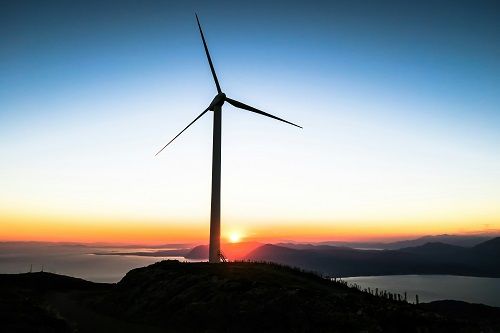Success stories are piling up in the renewable energy sector: Their share of total energy consumption continues to rise. „But it's too early to rejoice“, warns Markus W. Voigt, CEO of the aream Group. „After all, almost the entire society is to be electrified, which will drive up electricity consumption.“ Renewables must therefore continue to be consistently expanded - and private capital must be raised for this.
The advance of renewable energies is unstoppable. Last year, they supplied more than half of Germany's gross electricity generation for the first time at 53 per cent - in 2000, it was only around six per cent. In 2023, the share of wind power was just under 28 per cent, while photovoltaics accounted for 12 per cent. The contribution of renewables to primary energy consumption is significantly lower - but also on the rise - climbing from 17.5 to around 20 per cent in 2023. Mineral oil is still in the lead here with almost 36 per cent, followed by natural gas, which contributed a quarter. However, with the expansion of wind, solar and hydrogen capacities, the share of renewables in primary energy consumption will increase significantly.
„The advance of renewables is a success“, says Voigt, „but it needs to be put into perspective.“ Their increased importance is not so much due to the only slight increase in the generation of green electricity, but mainly to the fact that energy consumption and generation in Europe have shrunk overall due to the pandemic and ongoing deindustrialisation.
In the future, the share of electricity in the overall energy mix will continue to rise sharply with the electrification of the economy and society. „This is why renewable energy capacities need to be significantly expanded“, explains Voigt. „And that will only be possible with the help of private investors.“
Electricity still only accounts for a fifth of total final energy consumption. However, various factors will quickly drive this proportion up. The main drivers will be data centres, particularly for artificial intelligence, and the transport sector, especially the increased number of electric cars, but also the expansion of rail transport. In addition, there is the provision of heat for buildings via electric heat pumps. The operation of battery factories and the production of green hydrogen using electrolysis will also require more electricity.
„According to the German government's plans, energy efficiency is also to be significantly improved, which will tend to curb the growth in electricity consumption“, says Voigt. „Nevertheless, there is no way around a further and accelerated expansion of renewable energies as the most cost-effective source of electricity - the targets are still a long way off.“
PRESSEKONTAKT:
Leandra Kiebach
T: +49 (0)211 30 20 60 4-2
E: lk@aream.de

